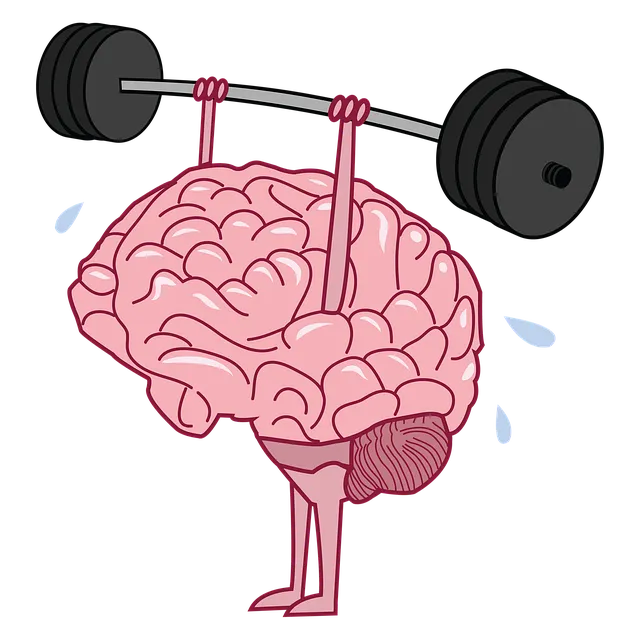Kaiser's inpatient mental health services in Lone Tree offer specialized stress management programs using evidence-based techniques like positive thinking, crisis intervention, mindfulness meditation, and cognitive behavioral therapy. These holistic approaches, including conflict resolution, coaching, and self-care promotion, empower patients with tools to navigate daily pressures, prevent burnout, and improve long-term well-being, accessible via their Mental Wellness Podcast Series.
“Stress management techniques are vital skills in today’s fast-paced world. This article explores effective teaching strategies, focusing on how Kaiser’s Inpatient Mental Health Services in Lone Tree empower patients to cope with stress. We delve into innovative approaches that go beyond traditional methods, offering practical tools for long-term stress mitigation. By understanding the need for tailored instruction, we can help individuals navigate and overcome stressful situations, fostering resilience and improved mental well-being.”
- Understanding Stress Management: The Need for Effective Teaching Techniques
- Kaiser's Inpatient Mental Health Services in Lone Tree: An Overview
- Innovative Teaching Approaches to Empower Patients in Managing Stress
- Practical Tools and Strategies for Long-Term Stress Mitigation
Understanding Stress Management: The Need for Effective Teaching Techniques

Stress management is a vital skill in today’s fast-paced world, and teaching effective techniques can significantly impact an individual’s well-being. Understanding stress goes beyond simply recognizing its symptoms; it involves comprehending the root causes and triggers that lead to heightened anxiety or depression. This is where specialized teaching methods come into play, especially in facilities like Kaiser’s inpatient mental health services in Lone Tree.
The need for impactful teaching techniques arises from the fact that stress is a pervasive aspect of daily life. It can stem from various sources, such as work pressures, personal relationships, or even financial constraints. By equipping individuals with robust stress management tools, educators and healthcare providers enable people to navigate these challenges more effectively. Positive thinking, crisis intervention guidance, and structured Stress Management programs are some of the essential components that contribute to fostering resilience and promoting mental well-being.
Kaiser's Inpatient Mental Health Services in Lone Tree: An Overview

Kaiser’s Inpatient Mental Health Services in Lone Tree offer a specialized and comprehensive approach to addressing mental health concerns among patients. These services cater to individuals experiencing acute mental health crises, providing intensive care and support within a controlled environment. The facility is designed to offer a range of evidence-based treatments, including individual therapy, group counseling sessions, and pharmacological interventions, all tailored to meet the unique needs of each patient.
The program focuses on various aspects of mental wellness, such as burnout prevention strategies for healthcare providers—a critical component given the demanding nature of the medical field. It also emphasizes self-esteem improvement techniques, ensuring patients gain resilience and confidence in managing their mental health. By combining these therapeutic methods, Kaiser aims to not only stabilize patients but also empower them with long-lasting coping skills for a healthier, more balanced lifestyle.
Innovative Teaching Approaches to Empower Patients in Managing Stress

In the realm of stress management education, innovative teaching approaches are revolutionizing patient care, especially at facilities like Kaiser’s inpatient mental health center in Lone Tree. These methods aim to empower individuals with effective tools to navigate and overcome stress-related challenges. One such technique gaining traction is Crisis Intervention Guidance, which teaches patients structured strategies for de-escalation during intense moments of distress. By integrating this guidance into teaching curricula, healthcare professionals can equip patients with the skills to recognize triggers, manage symptoms, and foster mental wellness independently.
Furthermore, Conflict Resolution Techniques play a pivotal role in these teachings. Patients learn constructive ways to address interpersonal conflicts, thereby reducing additional stress factors in their lives. Additionally, Mental Wellness Coaching Programs Development is encouraged, where trained coaches guide individuals in setting personal goals, identifying coping mechanisms, and adopting healthier lifestyle habits. Such programs contribute significantly to the holistic improvement of mental health, ensuring patients develop resilience and self-management skills for long-term well-being.
Practical Tools and Strategies for Long-Term Stress Mitigation

Stress management is a lifelong skill, and teaching practical tools can empower individuals to navigate life’s challenges with resilience. At Kaiser, we understand that long-term stress mitigation goes beyond temporary fixes; it involves fostering mental wellness and trauma support services. Our approach includes a range of strategies such as mindfulness meditation, cognitive behavioral therapy techniques, and promoting healthy lifestyle habits. These methods help individuals recognize and manage stressors effectively, ensuring they can maintain their mental health even in demanding situations.
In today’s fast-paced world, where public awareness campaigns development plays a vital role, we also emphasize the importance of self-care routines. This may include regular exercise, adequate sleep, and engaging in hobbies or activities that bring joy and relaxation. By incorporating these practices into daily life, individuals can build their coping mechanisms, leading to improved overall well-being. Additionally, our Mental Wellness Podcast Series Production offers accessible resources for those seeking guidance on various stress management topics, ensuring that everyone has access to the support they need, whether through inpatient mental health services or community-based resources.
Stress management techniques are invaluable tools, especially within inpatient mental health services, as demonstrated by Kaiser’s program in Lone Tree. By employing innovative teaching approaches and practical strategies, patients can gain greater control over their stress levels, fostering long-term well-being. Understanding the importance of effective stress management and implementing these techniques can significantly enhance the overall effectiveness of mental health care.






